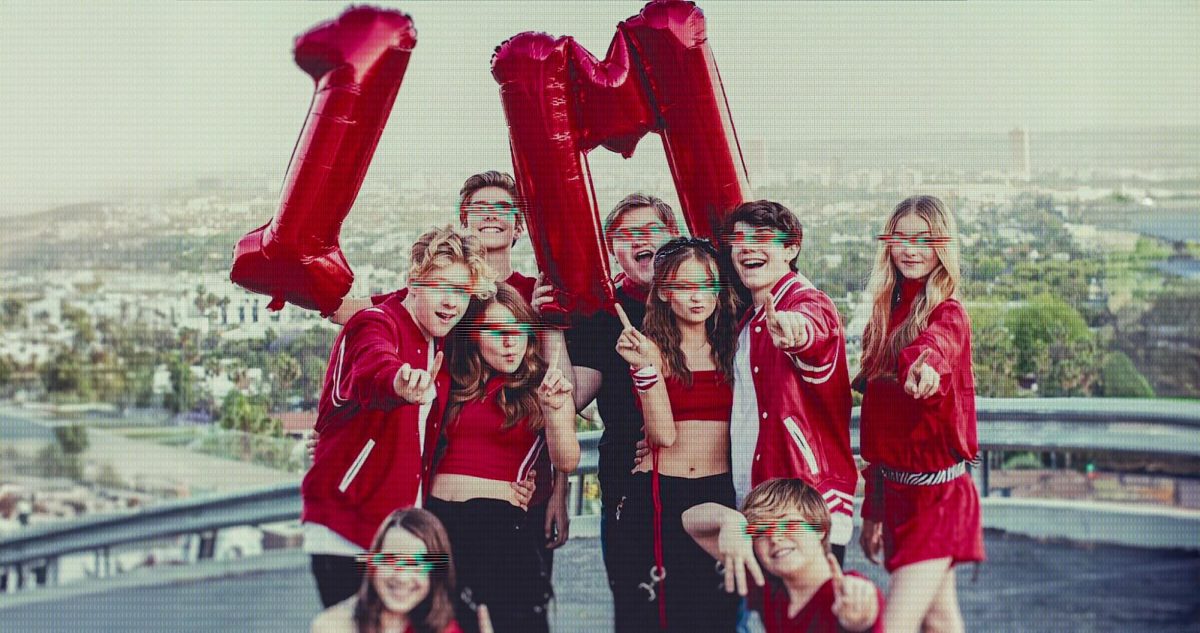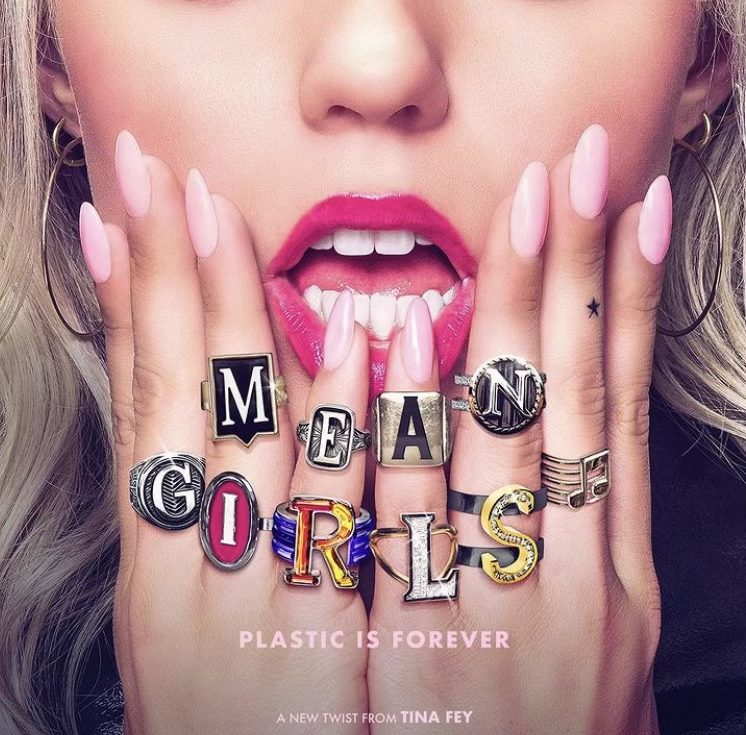North Shore High School is back and it’s…worse than ever? “Mean Girls,” the movie based on the musical of the same name, which is based on the movie of the same name, which is based on a book, was released in theaters on Jan. 12. Through all these adaptations, the “Mean Girls” name has headed down a slippery slope from its once high standing, tainting the franchise as a whole.
The movie is about the life of teen Cady Heron, who moves from Africa and is thrust into the complicated life of an American high schooler. Cady meets outcasts Janis and Damian, who warn her of the “Mean Girls” Regina, Gretchen, and Karen. Of course, chaos ensues as Cady becomes one of these mean girls. The movie is a heartwarming tale that says, “Why fit in when you were born to stand out?”
The biggest takeaway from the movie, more so than the cast, songs, or actual plot, was the less-than-subtle product placement and promotion. Brands like e.l.f Cosmetics, ticket-selling company SeatGeek, and Bubly sparkling water were openly displayed and stole the spotlight. The product placement was so obvious that not only were the products openly sitting on shelves, but the actors verbally plugged them during the film, even going so far as to name-drop the “e.l.f. Glow Reviver Oil.”
Another massive flaw was that the movie tried too hard to modernize the original 2000s fan-favorite film. The movie’s opening scene consisted of characters Janis (Auli’i Cravalho) and Damian (Jaquel Spivey) making a video on an iPhone; viral TikTok montages occurred frequently and popular internet creators were featured throughout. This emphasis on social media and today’s iPhone craze created a movie that can never recreate the timelessness of the original. From pink baby tees to low-rise jeans, the 2004 version of “Mean Girls” immortalized positive features of the decade, including their Y2K fashion and subtle humor, which people from any generation could understand. In the movie musical adaptation, however, without the cultural context of Gen-Z, many of the jokes fly over viewers’ heads.
One of the most iconic elements of the original movie was the aura of superiority in Regina George’s fashion sense. However, this remake failed to capture the essence of George’s style. Dressing her in obnoxiously cheap ensembles took away from the character’s “holier-than-thou” complex. George’s outfits acted as armor for the character, making her untouchable to the outside world, even as she battled with her own insecurities and issues. The original Regina (Rachel McAdams) became a style icon that young girls aspired to emulate. In the new adaptation, the outfits worn by the new Regina (Reneé Rapp) almost promote the generation’s already-prevalent problems with fast fashion and its environmental consequences.
Fans also noticed a stark difference in the quality of the soundtrack compared to the acclaimed Broadway recordings. The reboot’s recreation of songs is comparable to that of the TV show “Glee,” losing its Broadway charm and replacing it with cheap acapella backing vocals. The musical that this new movie is based on also featured Rapp as Regina George, whose individual vocals were showstopping. Coupled with the backing tracks of the film’s songs, however, even Rapp’s voice fell a little flat.
Despite the weak background vocals, the lead singers proved to be deeply talented individuals. Though Angourie Rice’s acting and disposition were perfect for the role of the main character Cady Heron, her vocal skills were below par. When her vocals, primarily in her song “Stupid With Love,” were listened to side-by-side with the musical, the difference in ability was hard to ignore. Where the musical featured confident runs and a strong vocal range, the movie felt bleak and one-dimensional. Any emotion during her songs had to be gleaned from Rice’s facial expressions; without that, her performances sounded similar to an AI-generated creation.
One thing the filmmakers did get right was the phenomenal casting. Right off the bat, it was clear that this movie had more diversity in all areas, including race, sexuality, and body type than that of its predecessor. One of the few limitations of the original film was its lack of diversity; the new adaptation trumps the older film in this regard.
The character Janis in particular was incredibly different in each of the two movie adaptations: in the older film, she was mislabeled as lesbian and called “Lebanese” as an insult, but in the new adaptation, Janis is lesbian and has a more detailed backstory with George.
In addition, one of the larger roles, Karen Shetty, is played by Indian-American actress Avantika Vandanapu. Karen Smith (Amanda Seyfried) is famous for being dim-witted and aloof in the 2004 movie, and she’s portrayed as a blonde, white woman. The casting choice for the new adaptation broke the infamous stereotype that blonde girls are always dumb and Indian girls are always studious and intelligent. Shetty quickly became most viewers’ favorite character, shutting down most questions about Vandanapu’s ability to capture the essence of a character as iconic and beloved as Smith.
Along with the great casting, the movie had some witty, well-timed jokes yet most of the jokes were only funny because they were in the original, and were left unchanged. Jokes about TikTok videos and Instagram filters only made the film feel stiff, as though the writers were trying too hard to relate to modern teen audiences. These efforts only made the jokes feel tacky.
If this remake has taught us anything, it’s that though plastic might last forever, the more it’s used, the weaker it becomes.
Mean Girls is in theaters everywhere.





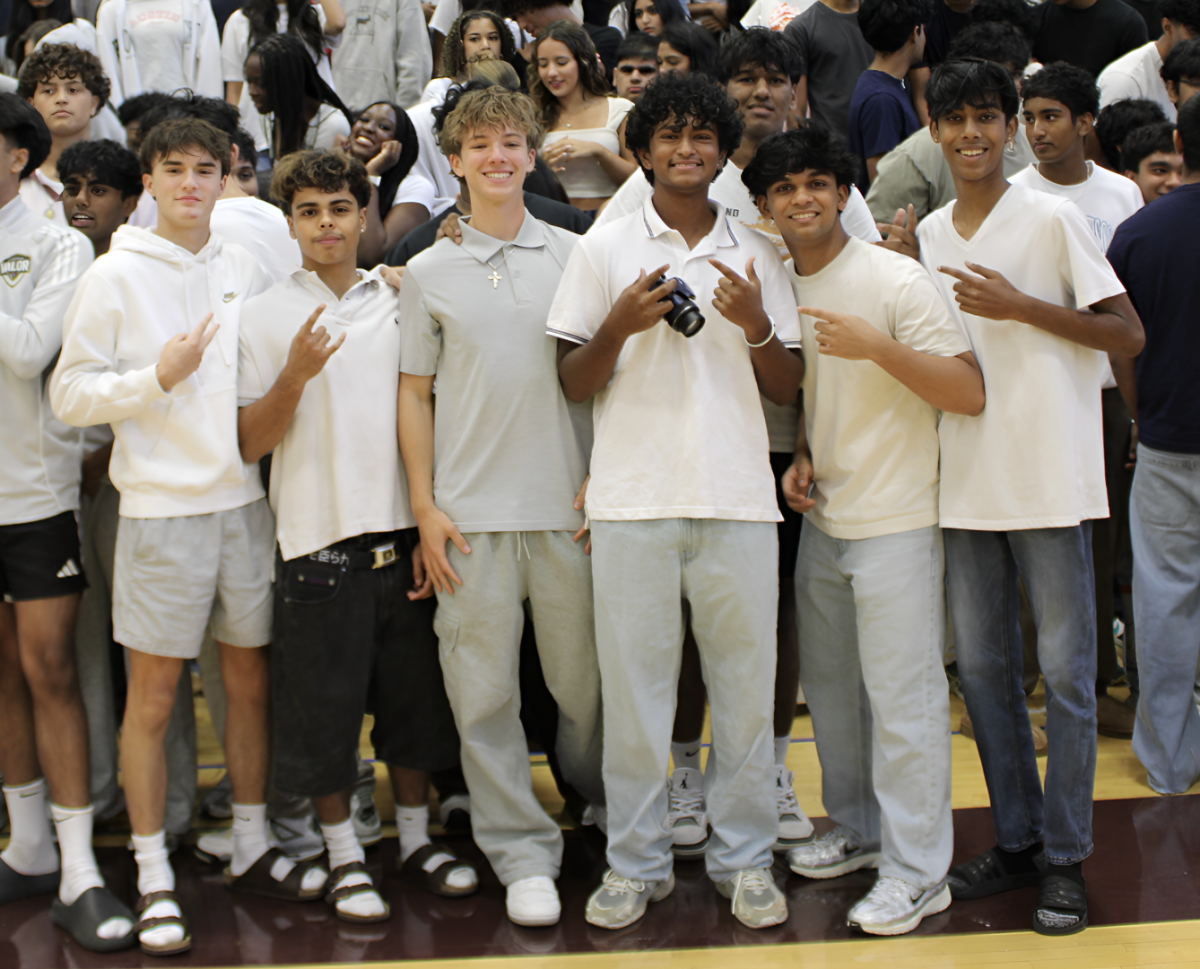









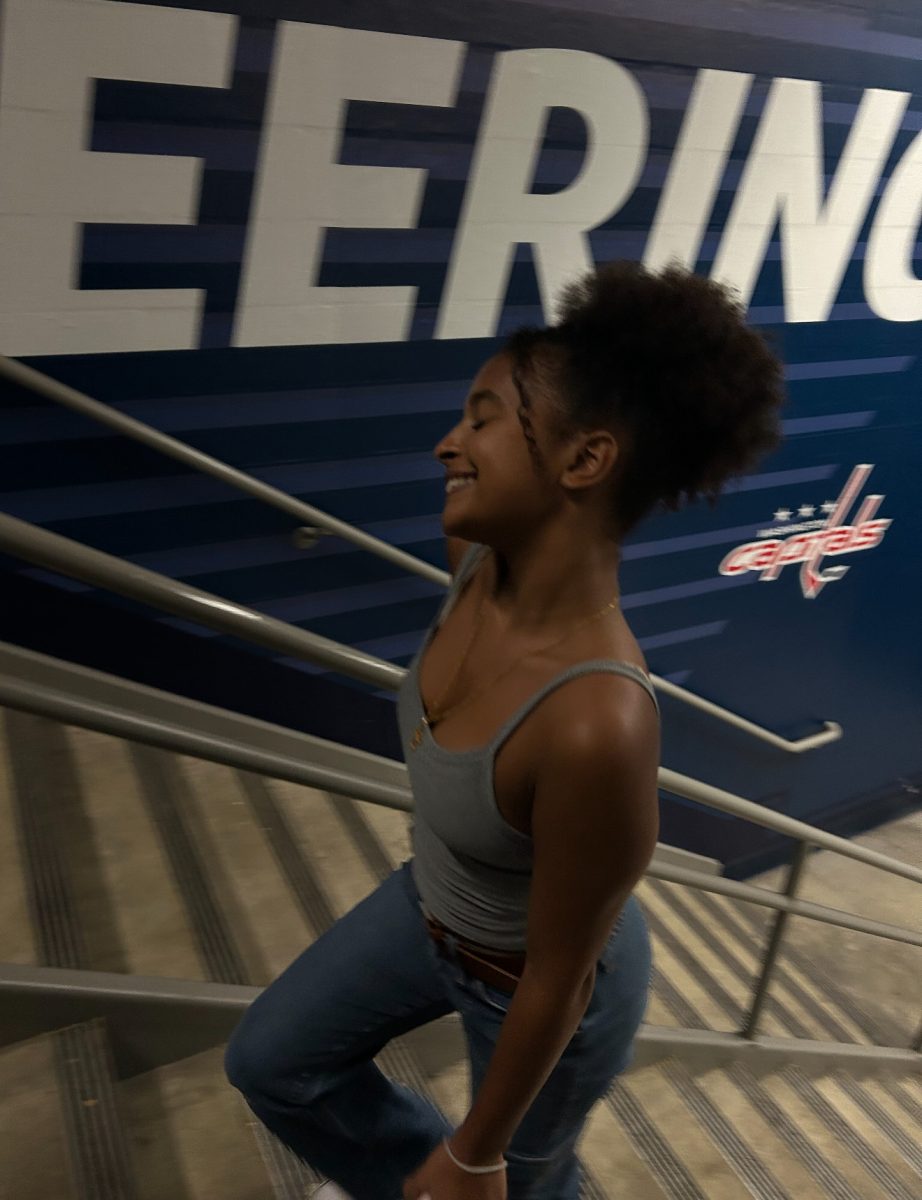



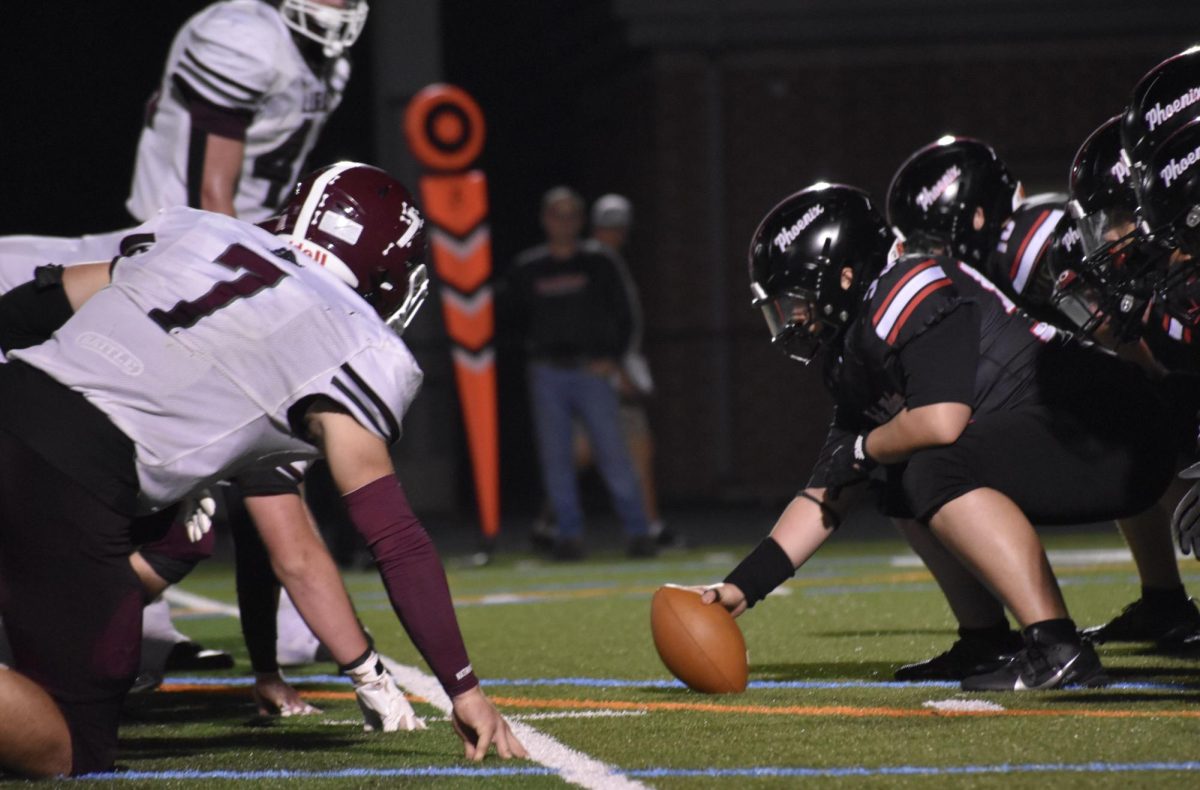





![The Phoenix varsity volleyball team lines up for the national anthem. “We were more communicative [with each other] during this game, and I feel like we kept our energy up, especially after the first set,” senior Jessica Valdov said.](https://theblazerrhs.com/wp-content/uploads/2024/10/DSC_0202-1200x800.jpg)










![Junior Alex Alkhal pitches the ball. “[I] just let it go and keep practicing so we can focus on our goal for the next game to get better as a team,” Alkhal said.](https://theblazerrhs.com/wp-content/uploads/2025/05/DSC_0013-1-1200x929.jpg)






